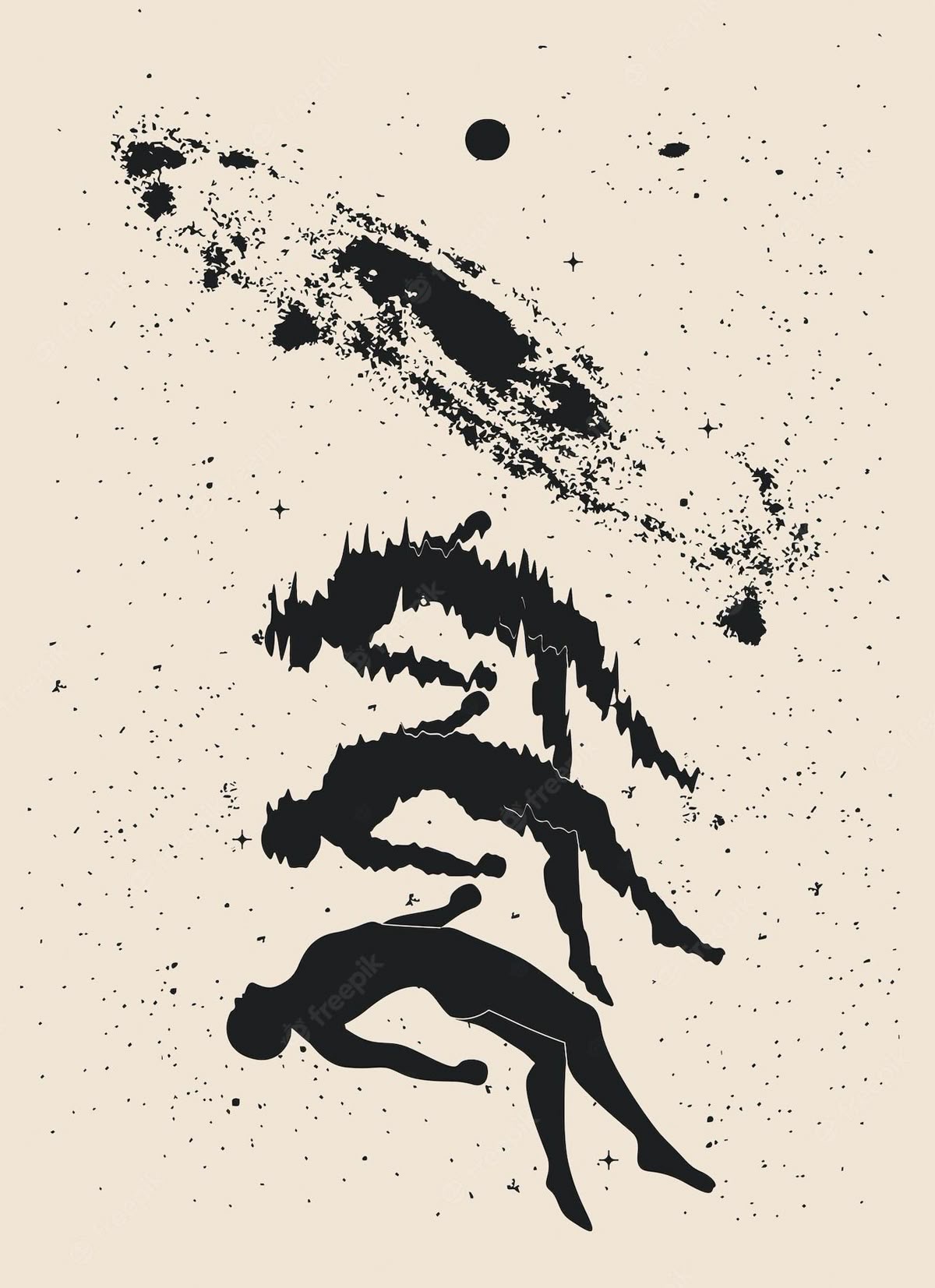The Fine Line Between Spiritual Expansion and Psychosis : When Madness feels like Awakening

Spiritual awakening is often portrayed as a blissful process — a path to peace, purpose, and higher consciousness. But what’s rarely spoken about is how profoundly destabilizing this experience can be, especially when the body and nervous system are unprepared to hold the intensity of that shift.
There is a razor-thin line between spiritual awakening and psychological breakdown. What we label as enlightenment can, in some cases, be the nervous system on the brink of collapse.
The Cracking Open
Spiritual awakening isn’t always soft and serene. At times, it’s more like being cracked open from the inside out. Our sense of identity begins to dissolve. Long-held beliefs and perceptions are questioned or shattered. We might feel like we’re losing ourselves — and in many ways, we are. The self we knew no longer fits, and a new self hasn’t fully formed yet.
But when the body — specifically the nervous system — isn’t ready to support this massive energetic and psychological shift, what was meant to be expansion can instead spiral into confusion, delusion, or even psychosis.
The Signs of Spiritual Dysregulation
The symptoms of a dysregulated spiritual experience often masquerade as awakening. They may include:
- Obsessive identification with signs, symbols, and synchronicities — everything feels like a message, a clue, a prophecy.
- A feeling of being stuck between dimensions, disconnected from everyday reality.
- Believing you’re here to save or heal everyone, even as your own life unravels.
- Extreme isolation, emotional volatility, or loss of coherence in thought.
- A deep sense that nothing makes sense anymore — not in a liberating way, but in a terrifying, disorienting way.
This is not ascension. This is survival. It’s a body in overwhelm, a nervous system frayed and stretched far beyond its capacity.
Dissociation Isn’t Awakening
Many mistake dissociation for spiritual progress. Floating above life, feeling untethered or out of time, may seem like transcendence — but often, it’s the body’s response to unprocessed trauma or overstimulation. Dissociation is a protective mechanism, not a spiritual gift. And unless addressed, it can leave you fragmented and more lost than ever.
We live in a culture that glorifies “quantum leaps” and “activations” without acknowledging the importance of grounded integration. But true spirituality is not about escaping the body or bypassing pain. It’s about coming fully into the body, holding both expansion and safety within the same vessel.
When the Soul Outpaces the Body
Sometimes the soul awakens faster than the body can handle. And the gap between the two — between expanded consciousness and somatic readiness — can feel like madness. This is the moment many people are misdiagnosed, misunderstood, or left alone in their suffering.
What’s needed in these moments isn’t more light codes or cosmic downloads. It’s support. It’s co-regulation. It’s trauma-informed care. It’s nervous system work that helps the body catch up to the soul, so that the expansion becomes sustainable rather than shattering.
Integration Over Ascension
Spirituality is not about leaving this world. It’s about embodying your soul fully within it. It means knowing who you are, and knowing where you are — with clarity, coherence, and compassion.
If your spiritual experience is making you feel less grounded, less functional, or less yourself, it’s not expansion — it’s dysregulation. And that’s not a failure. It’s a sign that your body is asking for care. Healing doesn’t always look divine. Sometimes it looks like slowing down, reaching out, and learning how to stay in your body without breaking.
What You Can Do If You’re Experiencing This?
If you’re currently in the midst of a destabilizing spiritual experience, know that you’re not alone — and you’re not broken. Here are a few grounded steps you can take:
- Seek trauma-informed support. A therapist, somatic practitioner, or spiritual guide with mental health training can help you safely process what’s emerging.
- Focus on regulation, not revelation. Practices like deep breathing, movement, sleep, and proper nutrition can restore balance.
- Stay connected. Isolation often makes things worse. Reach out to someone you trust. Connection is medicine.
- Slow down the spiritual input. Reduce time spent consuming intense spiritual content, especially if it leaves you feeling more fragmented.
- Ground daily. Walk barefoot, touch nature, feel your body. You don’t need to rise — you need to root.
Spiritual growth should make you feel more whole, not less. Healing happens not when we escape our human experience, but when we learn how to live in it — fully, gently, and with grace.
A Final Word
There is nothing shameful about needing help during spiritual transformation. In fact, seeking support is one of the most spiritual things you can do — because it honors your body, your boundaries, and your human experience. The goal isn’t to transcend being human. It’s to be deeply, authentically human while carrying the light of your soul.
Spiritual awakening is real. So is psychosis. And distinguishing between the two is essential for healing. Let’s stop glorifying disembodiment and start supporting grounded, integrated growth — the kind that doesn’t just illuminate, but stabilizes and strengthens us from within.



Comments (0)